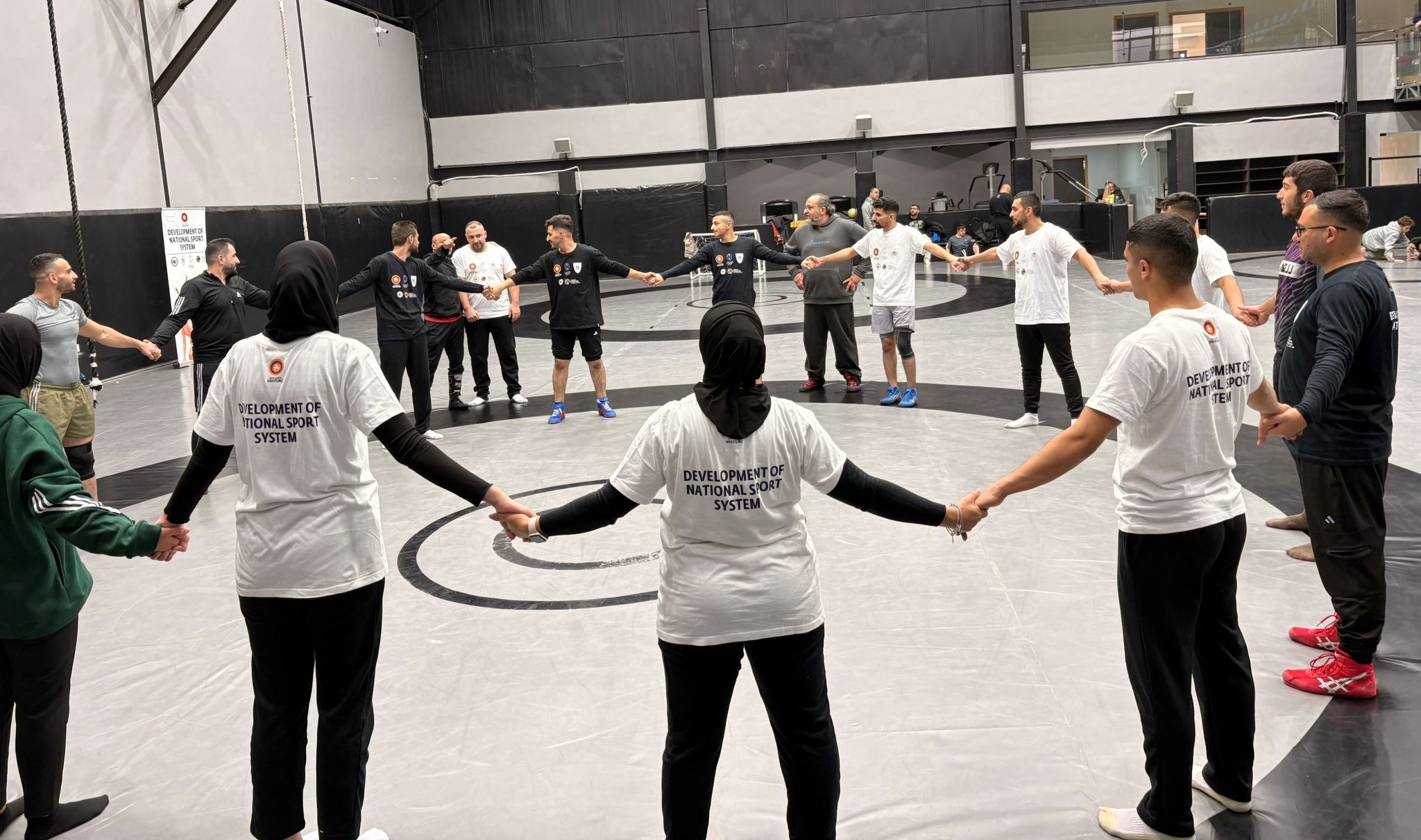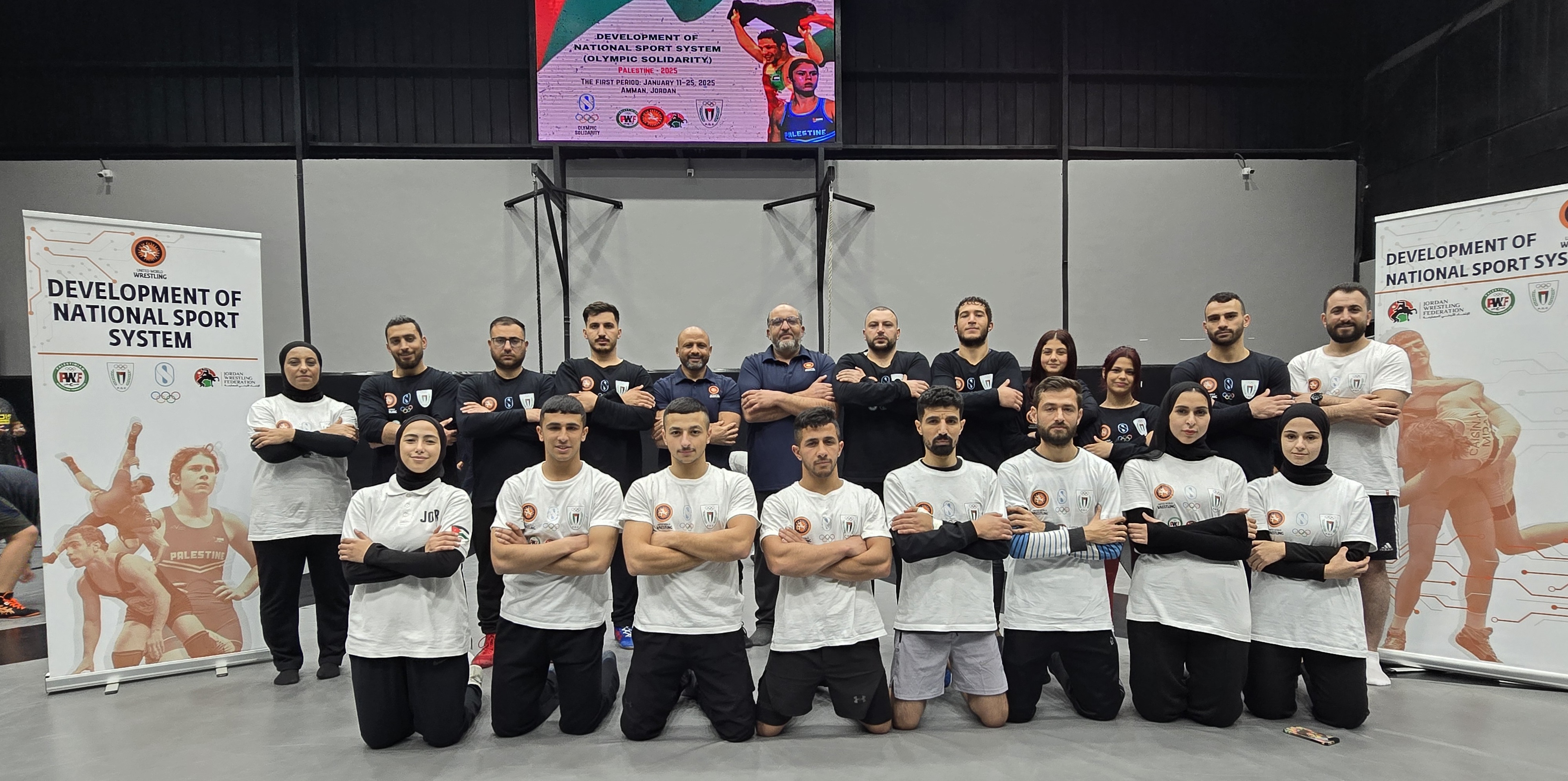Wrestling is back in force in Thailand
Monday, March 27, 2023 - 15:26 By United World Wrestling Press

CHIANG MAI, Thailand (March 27) --- Following the visit by Ms. Deqa NIAMKEY, Director of the Development Department, President Nenad LALOVIC commissioned the return of wrestling to Thailand both nationally and internationally. The answer came from the Thai National Olympic Committee, which made it possible to revive wrestling.
The Thai National Olympic Committee allowed the organization of an Olympic Solidarity course in collaboration with United World Wrestling to jointly deliver a UWW Level 1 Coaching, Training and Introduction to Refereeing course.
Thirty participants, including coaches, referees and seven federal staff members, were present for this training. Mr. VUISIT TANGVARITHRON, President of the Thai Wrestling Association, also made the trip to the city of the Lanna Empire, Chiangmai.
 Referees work together during the Introduction to Refereeing course. (Photo: United World Wrestling)
Referees work together during the Introduction to Refereeing course. (Photo: United World Wrestling)
For this revival of wrestling in Thailand, United World Wrestling sent three trainers: Vincent AKA, UWW development officer, Ashok KUMAR, UWW educator, and Komeil GHASEMI, Olympic champion.
The opening ceremony welcomed the presence of Mr. PREM Vathabunditkul, Vice-president of the Thai Wrestling Association. He set the scene by emphasizing the Association's objective to train new coaches and referees.
Mr. Narin Sangsrichan, Vice-president of University Sports in Thailand, set the course by saying, "Chiang Mai Sports University and the Thai Wrestling Association, let's house this camp for you and welcome new coaches to achieve national excellence."
The Thai wrestling Association requested Level II training. However, given the level of the participants, it was agreed to start with a Level I course to establish a solid foundation in terms of technical and pedagogical skills for these coaches. However, a Level II course will be organized in 2023 with the same participants.
 Vincent AKA presents development programs to the Thai Wrestling Association. (Photo: United World Wrestling)
Vincent AKA presents development programs to the Thai Wrestling Association. (Photo: United World Wrestling)
Vincent Aka took the opportunity to present to the President of the Thai Wrestling Association all of United World Wrestling's development programs. He also gave the Olympic Solidarity programs accessible to National Federations through their National Olympic Committees.
The President of the Thai Wrestling Association was very satisfied with this course and is already looking to the future by thinking of two programs that can help develop the Thai Wrestling Association.
Mr. Pattaya Charlie, a member of the Association, reinforced the general satisfaction. During the closing ceremony, he said, "In the name of Chiang Mai Sports University, we would like to thank United World Wrestling for sending us a talented team of educators. On this occasion, we learned new techniques, the evolution of the rules, and new teaching methods based on the fundamentals of wrestling to train our new coaches and referees."
Speaking of his contribution to the success of this camp, Komeil Ghasemi noted his pride and enthusiasm to bring his stone to the wrestling family. "I am thrilled to share my experience and my expertise with all the participants. UWW remains committed to its affiliated members and is always concerned for their development and is committed to working with all the partners concerned towards this objective of sustainable development while keeping the course of the 2022-2026 strategy."





Share your thoughts.
Comments